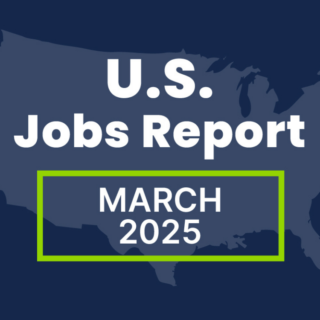Many employers have begun to think about employer value propositions (EVPs) as a transaction, as if an EVP is a contract between an employee and an employer or a “deal” expressing what an employer expects from candidates and what candidates receive in return. But, although it’s an easy way to think about the concept, it doesn’t tell the whole story.
At PeopleScout, we define employer value proposition and employer brand as the following:
- Employer brand: Your employer brand is the perception and lived experiences of what it’s like to work for your organization.
- Employer value proposition: Your employer value proposition, or EVP, captures the essence of your uniqueness as an employer and the give and get between you and your employees.
However, when you look at an EVP simply as a “deal,” you leave out the uniqueness – the human side of equation. That’s because candidates are unique individuals who assess prospective employers based on what’s important to them at that moment. For instance, for one candidate, that could mean finding a workplace that’s like a family to make them feel safe and secure. Alternatively, another candidate at another point in their life could thrive in a fast-paced environment where they’re always staring down a new challenge.
Furthermore, candidates now have unrivaled access to information online and are more mobile. Plus, they’re also accustomed to consumer brand interactions that are personalized, anticipate their needs, and demonstrate cultural values that benefit individuals, communities and the environment. At the same time, candidate expectations are changing in line with our expectations of consumer brands: We want a job to pay the bills, but also one that provides us with a fulfilling experience. As a result, an EVP must address the complex emotional needs of candidates in order to strike a chord – and, notably, the need to align meaning and purpose is becoming the most crucial differentiator.
So, at PeopleScout, we’ve developed what we call the “Purpose, Passion and Mindset” model. This approach enables employers to draw in the candidates who will succeed and provides flexibility for individuals as their needs and desires change throughout the course of their employment. In this article, we’ll explain how this model works in relation to both candidates and employers, as well as how you can use it to find and hire the best talent for your organization.
Purpose
Purpose is a candidate’s alignment with and willingness to contribute to the vision and values of an organization. In fact, one study reported by McKinsey found that, out of 100 variables, employees reported that seeing purpose and value in their work was their most motivating factor – even more so than compensation.
Therefore, from an employer perspective, the idea of purpose should be simple to understand and to define: Why does your business exist? Why did it start? What is the vision for the future? Who are the people you need to deliver on that purpose? These are foundational for an employer, but they should also be effectively communicated in employer branding materials; on career sites; and through the employer’s website, social media and other channels.
Conversely, from a candidate or employee perspective, purpose is more fluid. If you ask a candidate where they derive purpose, you may hear answers about five-year goals or work/life balance. And, depending on the circumstances of a candidate’s life, they may be living to work or working to live. Perhaps they’re focused on career growth and looking for a challenge. Or, they may be balancing personal and family obligations with work. In any case, the way a candidate answers that question will provide insight into the type of employer and culture that the candidate is looking for. Therefore, as an employer, you need to understand how your purpose aligns with what candidates want and need – and you need to effectively communicate that to candidates. What are the values that drive your approach to business and your culture?
Sometimes, an employer’s view of purpose and a candidate’s view of purpose can overlap in clear and obvious ways. For example, a healthcare organization dedicated to providing the best patient care would be an obvious fit for a nurse who derives purpose from providing the best care for their patients. However, it isn’t always so simple. Talent acquisition leaders need to understand the gaps that exist between employer purpose and candidate purpose. And, it can be far too easy to fall into the trap of only focusing on an employer’s purpose and not recognizing the needs of candidates. Rather, employers should focus on how a job can help a candidate achieve their goals and find purpose in their lives.
Passion
Passion is easy to understand on a human level: What gets you out of bed every day? Do you like solving problems? Connecting with people? Helping others achieve goals? Are you passionate about being creative? Telling stories? Creating a perfect product? Helping a team run seamlessly?
Passion is a candidate’s enthusiasm, enjoyment and commitment to mastering the requirements of a role. When an employee is passionate about a role, they are engaged. According to Gallup, 85% of workers are not engaged in their current roles. And, Dale Carnegie Training reports that organizations with engaged workers outperform their peers by 202%. Even so, most employers don’t have a method to effectively understand what a candidate is passionate about.
However, for an employer, passion comes down to the non-negotiables – the pillars of an organization or the three to five things that help a business fulfill its purpose. When thinking about these pillars, many employers talk about “a sense of restless innovation” or “continuous personal development.” But, instead, talent leaders should think of passion as something that allows an employer to connect with candidates and employees around what the candidate or employee is personally passionate about – whether that’s coming to work for the social interaction with customers; creating a culture of belonging; or working with people who treat each other with respect. Or, at the other end of the spectrum, developing new skills and having an influence.
Bringing these two elements together and aligning the employer and candidate passion tells a candidate that what they can bring to the table will be valued here. So, don’t be tempted to talk about your EVP in terms that are filled with business jargon or seem to be on an epic scale. Instead, speak in human terms about the things that are important to you as a business and help candidates connect your value set with their own.
Mindset
There are two types of mindset: fixed mindset and growth mindset:
- Fixed mindset is the belief that one’s talents are innate gifts and not malleable.
- Growth mindset is the belief that one’s talents can be developed through education and effort.
When we talk about mindset from a candidate’s perspective, it’s about a candidate’s belief about themselves and their basic qualities. These beliefs are rarely measured by employers.
Meanwhile, as an employer, you can create an environment that fosters one or the other. An employer that fosters a growth mindset is one that invests in its employees, providing development opportunities and stretch assignments. The employer doesn’t just allow people to learn and grow and move within the organization; rather, it’s a culture where employee growth and development is a defined goal.
Granted, it can be tempting to think of mindset as a factor that comes to life in the execution of an EVP – as something that is put into place after an EVP has been defined and employer branding materials have been created. But, you can’t foster a growth mindset if it’s the last thing on a checklist.
Instead, employers should approach the concept of mindset as the core of their culture; it should be a thread woven through your EVP. By going back to the concept of EVP as a “deal,” employers that create an environment that fosters a growth mindset will attract candidates who want to learn, grow and contribute more to the organization during their time there.
And, by focusing on purpose, passion and a growth mindset, employers can build an employer value proposition and employer brand for the future. Because when employers take their EVP beyond the transaction and “deal” to focus on the core of the unique human relationship between employee and employer, they’ll be able to attract the right workers to achieve the mission and purpose of the employer – all while providing a sense of purpose for employees.



